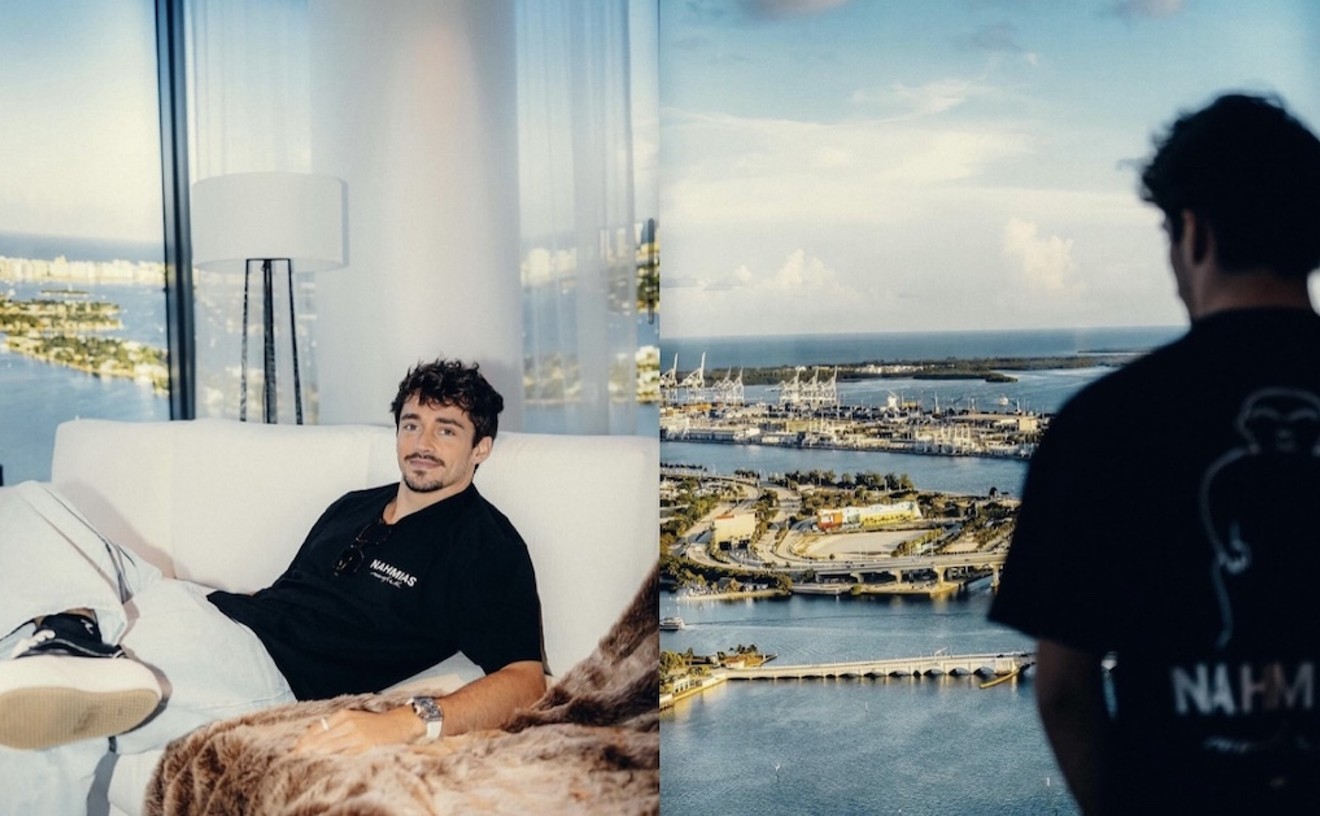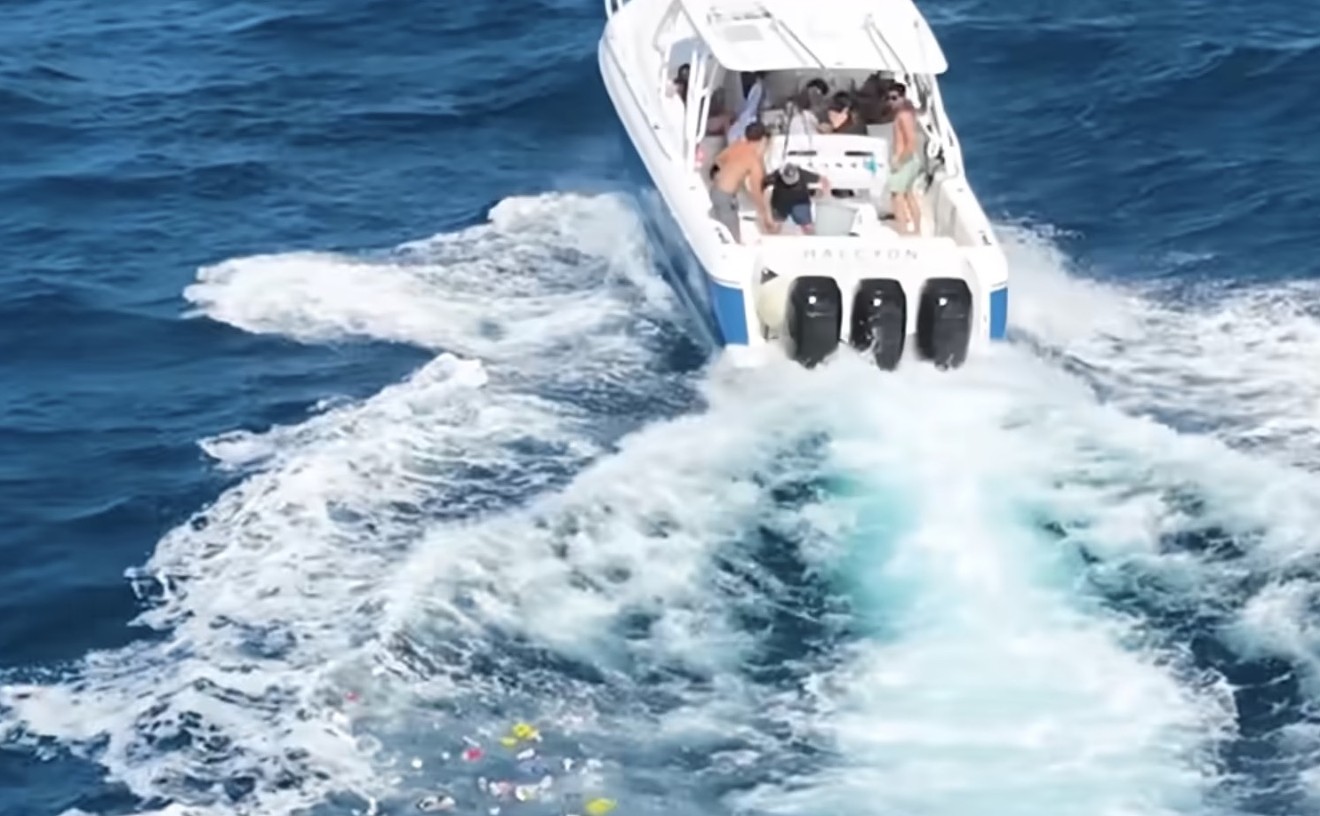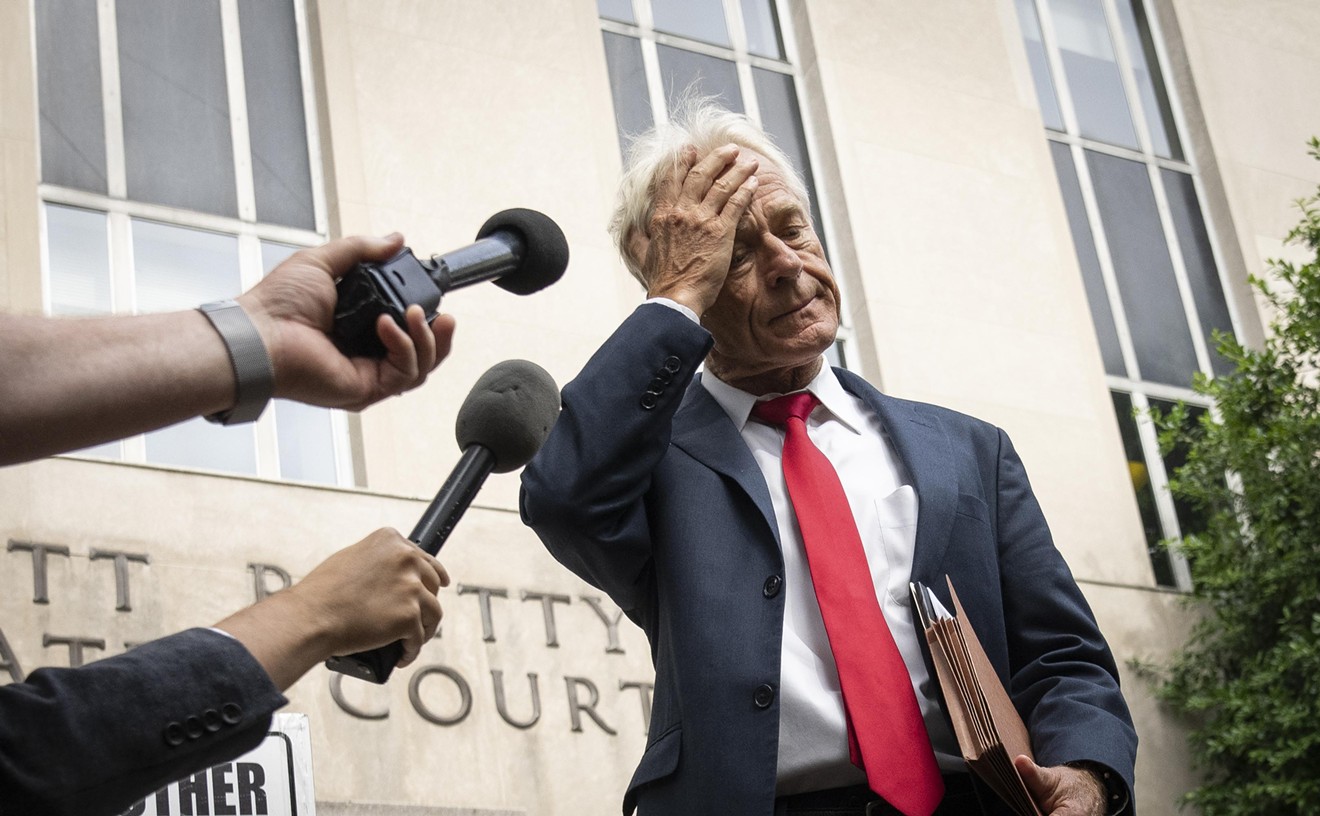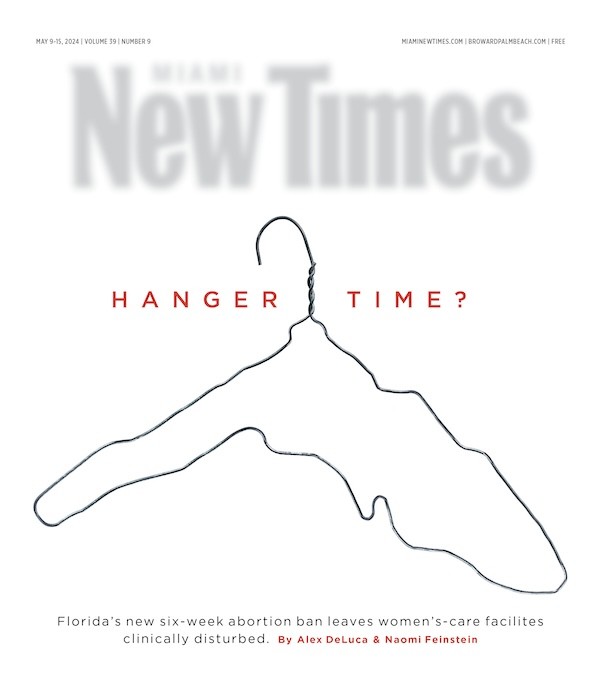It takes a preposterous amount of gall to dump a gigantic vat of oil into the ocean. It's cartoon-level evil, like something Biff Tannen's toxic-waste company BiffCo from Back to the Future Part II would do.
But in real life, that's exactly what a subsidiary of Miami's Carnival Corporation has been doing for years.
Today the U.S. Southern District of Florida announced that Princess Cruises, an L.A.-based company owned by Carnival, has pleaded guilty to seven felony charges stemming from the fact that it was caught dumping "oil-contaminated waste" into water off the coast of England using a "magic pipe."
The sheer deliberateness of the scheme echoes last year's Volkswagen scandal, in which that company was caught intentionally hiding pollution from regulators. In pleading guilty today, Carnival admitted to covering up illegal discharges from 2005 to 2013 and using the scheme on at least five ships.
An engineer caught in the scheme said the illegal dumping was money-motivated: It cost too much, crew members claimed, to properly dispose of oil waste.
Princess will pay the government $40 million, the "largest-ever criminal penalty involving deliberate vessel pollution" in American history. From here on out, all of Carnival's ships — not just the Princess line — must implement "remedial measures" if they want to visit U.S. ports for the next five years. Of the $40 million penalty, $3 million will go toward helping the South Florida environment.
"The conduct being addressed today is particularly troubling because the Carnival family of companies has a documented history of environmental violations, including in the Southern District of Florida,” U.S. Attorney Wilfredo Ferrer said in a release. “Our hope is that all companies abide by regulations that are in place to protect our natural resources and prevent environmental harm."
Carnival's tendrils snake throughout Miami: The company is the fifth-largest private employer in the county, with 3,500 employees. Carnival's chairman, Micky Arison, also owns the Miami Heat. According to Forbes, Carnival operates half of the world's cruises, and Arison is the nation's 61st-richest person, with an estimated net worth of $7.6 billion. Arison has long been the richest person in Florida.
But the federal government says a single whistleblower was able to hamstring the multinational company. On August 23, 2013, an engineer on the Caribbean Princess watched his co-workers dump oil waste through the aforementioned "magic pipe."
Normally, there are machines designed to monitor the amount of oil a ship dumps into the water — but the staff on the Princess ran clean seawater through the monitors to trick them. The staff on the ship routinely referred to its chief engineer responsible for the scheme as a "braccino corto," an Italian expression for a cheapskate. (The term literally means "short arms" and implies that a person's arms are too short to reach down and open his or her wallet.)
Once the whistleblower saw what was being dumped into the ocean in 2013, he quit when the ship docked at a port in Southampton, England, and sent photos of the scheme to the U.S. Coast Guard. And when the rest of the crew members on the Caribbean Princess realized someone had blown the whistle, they "orchestrated a coverup," according to the feds.
The crew held what the government called a "sham meeting" in the ship's control room, where one engineer held up a sign to warn the staff that the meeting was being recorded and to not incriminate themselves.
When the ship then docked in New York City September 14 of that year, the Coast Guard stormed onboard — but the government says "certain crew members continued to lie in accordance with orders they had received from Princess employees."
"The pollution in this case was the result of more than just bad actors on one ship,” said Assistant Attorney General John C. Cruden, who heads the Department of Justice's Environment and Natural Resources Division. “It reflects very poorly on Princess’s culture and management. This is a company that knew better and should have done better."
[
{
"name": "Air - MediumRectangle - Inline Content - Mobile Display Size",
"component": "19274298",
"insertPoint": "2",
"requiredCountToDisplay": "2"
},{
"name": "Editor Picks",
"component": "17482312",
"insertPoint": "4",
"requiredCountToDisplay": "1"
},{
"name": "Inline Links",
"component": "18711090",
"insertPoint": "8th",
"startingPoint": 8,
"requiredCountToDisplay": "7",
"maxInsertions": 25
},{
"name": "Air - MediumRectangle - Combo - Inline Content",
"component": "17482310",
"insertPoint": "8th",
"startingPoint": 8,
"requiredCountToDisplay": "7",
"maxInsertions": 25
},{
"name": "Inline Links",
"component": "18711090",
"insertPoint": "8th",
"startingPoint": 12,
"requiredCountToDisplay": "11",
"maxInsertions": 25
},{
"name": "Air - Leaderboard Tower - Combo - Inline Content",
"component": "17482313",
"insertPoint": "8th",
"startingPoint": 12,
"requiredCountToDisplay": "11",
"maxInsertions": 25
}
]











